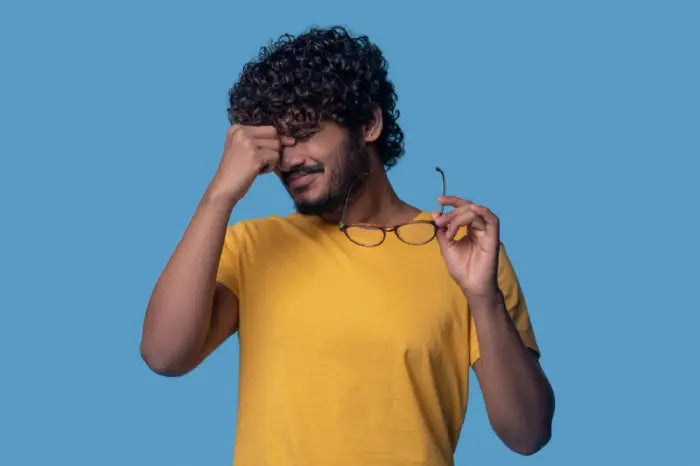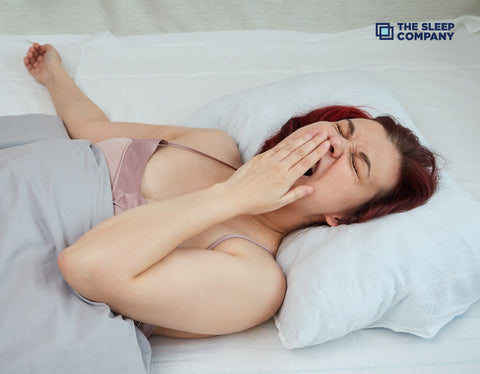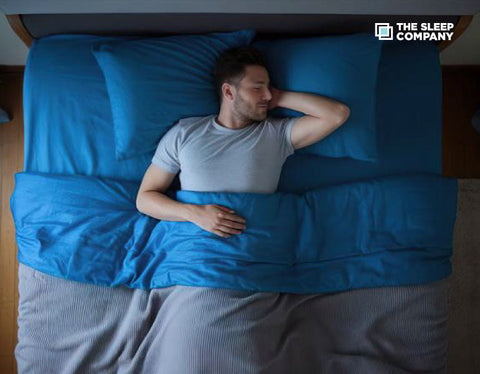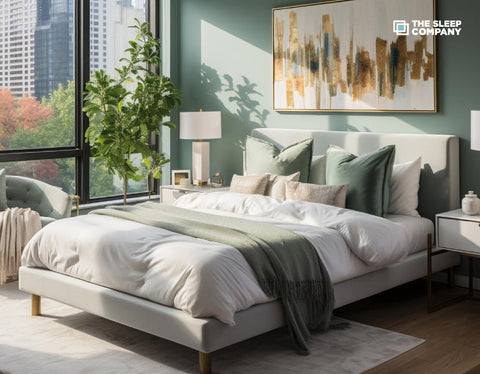My Cart

How Sleep Deprivation Affects Your Vision


A good night’s sleep is the secret to a healthy and long life. In today’s times, it’s fairly normal for people to forego their sleep. It can be difficult to strike a balance between getting enough sleep and everything else that needs to be done in a day. Many people may not understand, though, how damaging sleep deprivation can be to your vision.
Eyeing the Exhaustion Problem
Our life seems to entail an inescapable amount of fatigue. As soon as we wake up, our race of daily life struggles begins. Adults require at least 7 to 8 hours of sleep per night to feel reasonably rested, but shockingly, many sleep for less than 5 hours each night on average. This unhealthy lifestyle is the primary cause of exhaustion. Eventually, this kind of living becomes a major factor for your eye problems.
Eye Problems Caused by Lack of Sleep
Sleep deprivation has an impact on more than simply your appearance. Getting enough sleep is important for both your physical and mental well-being. Not getting enough sleep has an impact on a variety of things, including your motivation, memory, metabolism, and mood. Even the health of your eyes is impacted.
Dry eyes:
Your eyes are under increased strain as a result of frequent sleep deprivation, which often results in dry eyes. Dry eyes are caused when your eyes do not have a sufficient amount or quality of moisture. Light sensitivity, eye pain, itching, redness, and fuzzy vision are common symptoms in people with dry eyes.
Blurry vision:
Vision blurring is one of the side effects of sleep deprivation. You might not blink enough if your eyes work overtime, which results in blurry vision. Vision blurring can occur for a variety of reasons, so if it happens regularly for you, you may consider consulting an eye specialist.
Dark circles:
Bags under the eyes are strongly linked to insufficient sleep. There appears to be a connection between sleepless nights and dark circles, which develop when we retain too much fluid in that area.
Anterior ischemic optic neuropathy:
Middle-aged and older people frequently suffer from the dangerous eye condition known as anterior ischemic optic neuropathy (AION). This condition may occur if a person experiences prolonged sleep deprivation. AION is an inflammatory blood vessel disease brought on by aging Due to the decreased blood flow to our eyes, this incident has the potential to negatively impact the optic nerve over the long term and result in permanent vision loss.
Glaucoma:
A serious issue that might result from inadequate eye rest is glaucoma. Your eyes will be put under strain if they don’t get enough rest at night to rehydrate and recuperate from the day, which can eventually lead to the development of glaucoma. It can result in total vision loss if unchecked, although there are therapies to prevent its progression.
Light sensitivity:
Your eyes will become less sensitive to light if you don’t get enough sleep. You will find it more challenging than others to leave the house during the day because of this.
Eye spasms:
You may experience eye spasms if you don’t get enough sleep. Some of the most active muscles in the body, those that control our eye movements, can become overworked and cause problems.
Sleep: The Protector of Your Eyes

The source of all your eye problems is lack of sleep. By neglecting sleep, you not only damage your eyes but also affect your overall well-being. However, it is never too late to change your lifestyle and save your precious eyes. It’s crucial to plan how to sleep well as regards the general quality of your sleep as well as the number of hours you spent in the land of slumber.
How to Sleep Better
To help you sleep better and prevent eye problems, consider the advice below.
Sleep well enough each night:
Adults typically require seven hours of sleep per night or more. Try these ideas if you’re having trouble getting a good night’s sleep:
- Try to stick to a regular bedtime and wake-up time each day.
- Maintain a comfortable temperature in your bedroom.
- Turn off every light in the room, including the nightlights.
- Read a book, and meditate before you sleep instead of hooking yourself to electronic gadgets.
Sleep on a comfy mattress: A high-quality mattress can significantly enhance your sleep. This, in turn, will prevent you from developing eye problems. You can get the buy mattress online from a variety of top brands at affordable prices. You may also opt for the traditional retail purchase. The Sleep Company’s SmartGRID mattress is an excellent choice as it offers next-level comfort and back pain relief. Sleeping solutions such as pillows and comforters are also recommended.
Exercise: Regular daytime activity can help you sleep better. Exercises such as running, cardio, yoga, and resistance training help you stay healthy. Keep in mind that if you exercise too soon before bed, you can have trouble relaxing and falling asleep.
Diet:
The food that you consume can have an impact on how well you sleep at night.
- A nutritious meal can help in synchronizing your body clock in the morning.
- Plan your dinner in such a way that you are not overstuffed by the time they go to sleep.
- Before making any significant dietary changes, talk to a dietician for making sure that you still eating a proper diet.
- Limit sugary foods, carbonated beverages, and other stimulants close to bedtime.
De-stress before dozing off:
You can relax before bedtime by doing activities, such as:
- Meditation
- Reading
- Praying
Also, it is advisable to avoid:
- Office work and studies
- Reduce screen time of electronic devices that emit blue light
- High-intensity workouts
Avoid alcohol:
Liquor is a strict no-no as it can temporarily make you sleepy but disrupts your sleep cycle. You are more susceptible to disturbed sleep while you are under the influence of alcohol. Eventually, this will end up affecting your eyesight.
Conclusion:
Your eyes are more precious than any gift that you may ever receive. It is our duty to protect them and sleep is the best way to do it. By following the sleep guidelines mentioned above, you can be assured of not having any eye problems. It can be rightly said that sleep and vision go hand in hand toward a healthy life!





























































